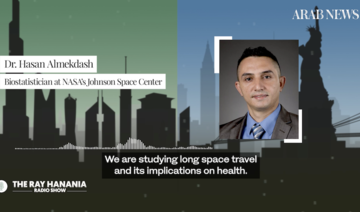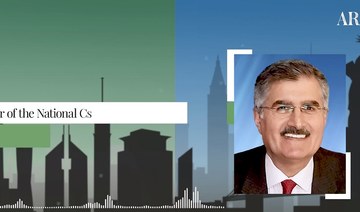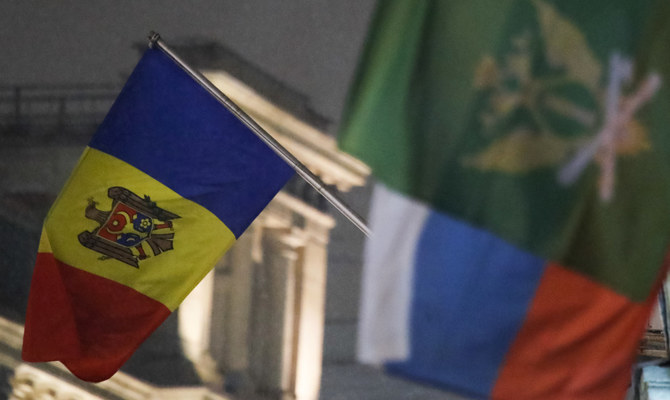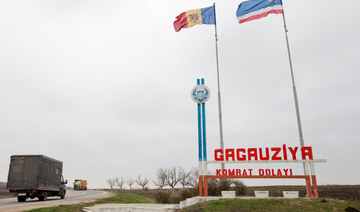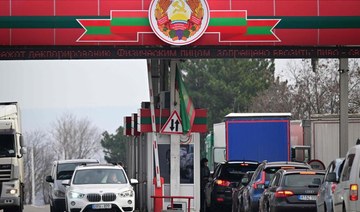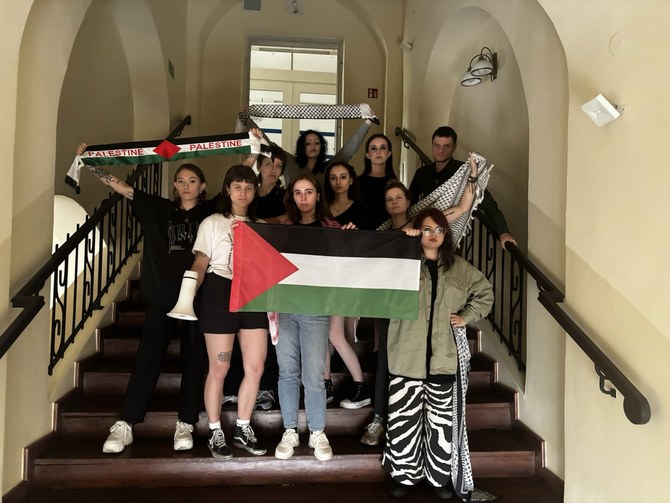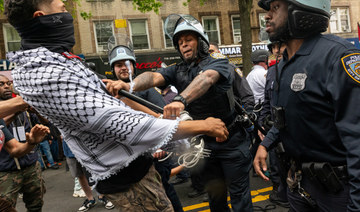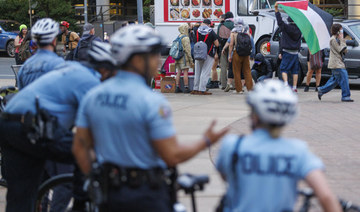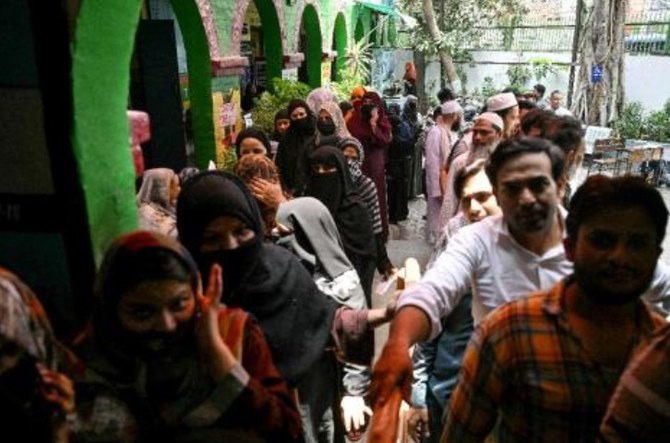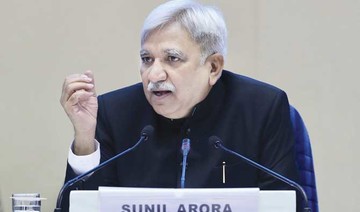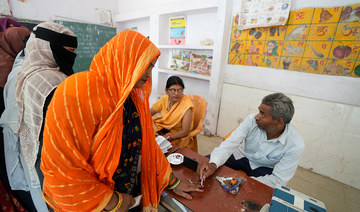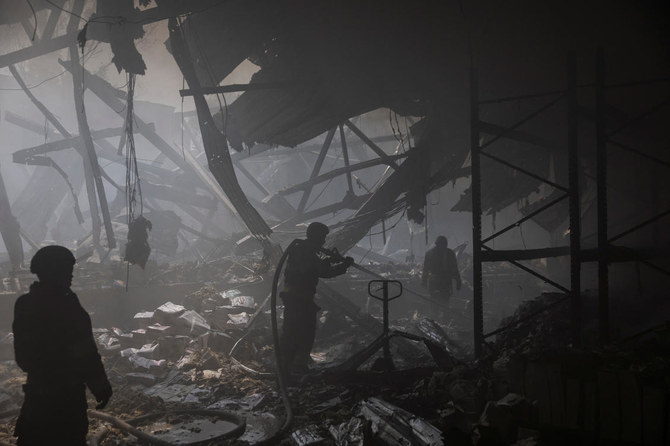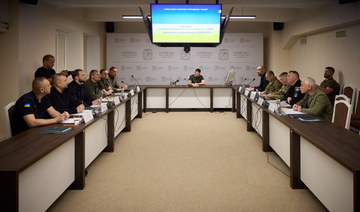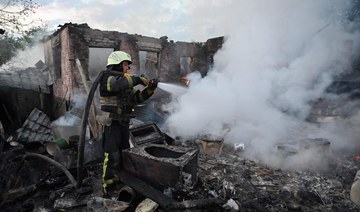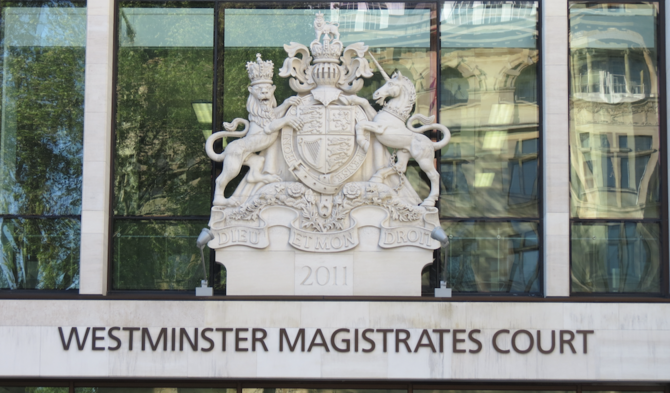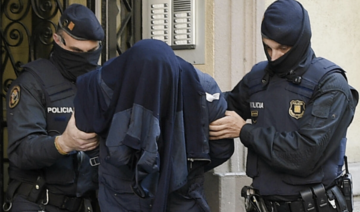Civil rights attorney Huwaida Arraf told Arab News Wednesday she is determined to address the “real issues” facing voters to overcome personal and false attacks, and big-money campaigns, from pro-Israel political action committees seeking to block her from winning the Democratic Party nomination for congress in Michigan’s 10th District.
Arraf is being targeted by negative ads worth hundreds of thousands of dollars, funded by pro-Tel Aviv PACs coordinated by the American Israel Public Affairs Committee. AIPAC has this year spent more than $12 million mostly attacking candidates who question or challenge Israel’s policies.
This past Tuesday in Maryland’s Democratic primary election, AIPAC-affiliated groups channeled more than $6 million to defeat former Congresswoman Donna F. Edwards in a wave of negative ads because during her past decade in congress she sought to hold Israel accountable for its actions.
Similarly, Arraf is facing a wave of negative ads funded by AIPAC-affiliated PACs focused on Michigan’s Democratic Primary on Aug. 2. But she believes most voters see past AIPAC’s “vitriol and their lies” and are responding to her message which addresses core issues that mean more to them than the politics of a foreign country.
Arraf said AIPAC is trying to “buy the election” to protect their interests in Israel, a foreign country, rather than address “the real needs” of voters who live in America.
“I am fighting to make this government and economy work for working people. We have a structure that is largely due to the influence of big money in politics. And AIPAC obviously falls into that. With their millions of dollars they try to buy politicians and that is why we see a lot of members of congress, unfortunately, blindly voting in support of Israel,” Arraf explained during an appearance on The Ray Hanania Radio Show.
“And I am talking to voters about the need to get big money out of politics so that we can make this government and economy work for them. When we are talking about why people don’t have healthcare. Why 40 percent of Americans newly diagnosed with cancer lose their entire life savings within two years because they can’t pay for the treatment that they need. Or you have an illness or an accident and you are worried about bankruptcy. Why we can’t guarantee healthcare. You are talking about big insurance companies and the influence of their money in politics. Why we are so overcharged for prescription drugs and life-saving drugs. That is the pharmaceutical companies.
“Why we are not cleaning up our air and water. You are talking about fossil fuels and the coal companies. People feel very much and are very cynical unfortunately about the elections. Who are these people representing (us) in elections? Are they representing us or are they representing those buying them or who are writing them the big checks?”
Arraf said the influence of big money is “destroying” American democracy and must be stopped.
A Christian Palestinian and mother of two young children whose immigrant father was a UAW worker in Detroit’s motor industry, Arraf is seeking to strengthen support among the large population of Christian Arabs and Chaldean Middle East Christians who constitute a large pocket of voters in the 10th District, which is considered a 50-50 Democratic and Republican district.
She said that when voters can hear her message above the attacks funded by AIPAC, voters are more sympathetic and supportive of her candidacy.
“I have been trying to motivate more people to support. And as you say, our community has been slow to come on and support for a variety of reasons, unfortunately. So, it has been a struggle getting the resources to be able to do the voter outreach,” Arraf conceded.
“But one of the things that has been very interesting is we ran a poll a couple of months ago. And that poll showed that if the election was today and voters were just going by name, this opponent that I have would win by double digits. He would beat me and everybody else. Because everybody knows his name.
“But then we read to the voter everybody’s biographies and their issues and then I move ahead slightly of this person. And then we read (to) the voters positives and negatives about everyone. For me, I included negatives like all of the horrible things that AIPAC and the like throw at me that I am antisemitic or that I am a terrorist supporter, all of these lies because they probably hear them.
“And at the end of the poll when we repolled everyone, I actually beat this guy, the considered front runner who has the name recognition. I beat him by 11 points. That shows you that my message resonates with people if they hear it, if we can reach them. And the attacks against me for my Palestine work … don’t lose me very much support because of this district.”
The 10th District is officially 78 percent White. But because Arabs are not included in the US Census there is no way to estimate the size of the Arab and Muslim community in the district.
The district, Arraf said, has a sizeable Chaldean voter population.
“But there is a very strong Arab presence here. Arabic has become now, according to a recent article that I have seen, the second most common language spoken after English in the house. And we have at least in one of the cities here almost a third of the population is Chaldean. So, Chaldean(s) and Arabs make up a sizable portion of this district. Not like Dearborn but it could get there and we are definitely expanding when we are sharing the culture, and we have a lot more Mediterranean places popping up,” Arraf said.
“But one thing that I see and I talk about a lot, is, then why are we not, why isn’t anyone talking about the power of the Arab or Middle Eastern vote? Every election cycle we hear about the power of the African American vote and the Jewish vote and the Latino vote. At least in Michigan, make them give us (Arabs and Middle Eastern people) some consideration by showing that we get out there and we vote. And that has been the struggle, part of the struggle with this race, at least, knowing that there are a lot of Arabs and Chaldeans in this district but they might not get out there and vote. And that is something that we have to work on.”
Lower taxes, better healthcare and wanting human rights are not partisan issues, Arraf argued. “My message is universal and voters who are not blindly pro-Israel can see that,” she said.
Arraf acknowledged that the Arab community is “very generous” when it comes to doing humanitarian work, but they are still far from the political level of the pro-Israel community which funds millions for their own causes.
“With regard to the Chaldean community and the Arab American community as a whole, I know that we are successful in business and in many different areas of life, but we are not represented in politics. We need more of our voices in order to be more integrated into this society, in order to have people that understand our issues and who can fight for our issues,” Arraf said.
“There is this misconception that Republicans are better for business. I am a supporter of small businesses that many Chaldeans and Arab Americans have here. A big proponent of not only incentivizing small businesses and especially when we are talking about minority communities starting small businesses. But also in leveling the playing field because we have so many mega-corporations here and monopolies that are squeezing out our small businesses and we need to fight that and I will.”
The Ray Hanania Show is broadcast live every Wednesday at 5 p.m. Eastern EST on WNZK AM 690 radio in Greater Detroit including parts of Ohio, and WDMV AM 700 radio in Washington D.C. including parts of Virginia and Maryland. The show is rebroadcast on Thursdays at 7 a.m. in Detroit on WNZK AM 690 and in Chicago at 12 noon on WNWI AM 1080.
You can listen to the radio show’s podcast by visiting ArabNews.com/rayradioshow.



